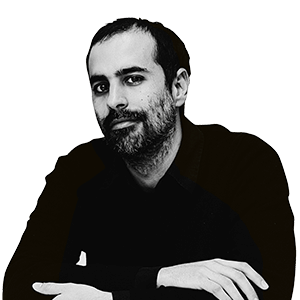"Israeli soldiers stole my film, and it no longer exists."
The Arab Film Festival pays tribute to Palestinian director Khadijeh Habashneh and the militant cinema of the Palestine Film Unit


BarcelonaThe United Nations General Assembly declared 1979 the International Year of the Child to celebrate the 20th anniversary of the Declaration of the Rights of the Child. But in the Palestinian refugee camp of Tel al-Zaatar, in Lebanon, where nearly 300 children had lost their parents at the hands of the Israeli army, talking about children's rights was a cruel joke. "The children of Tel al-Zaatar had nothing: no families, no homes, no healthcare, nothing. And when I learned that it was the 20th anniversary of the Declaration of the Rights of the Child, I decided to make a film to show how they lived," explains Khadijeh Habashneh (Karak, Jordan, 1945), the director. Children without childhood, who on Thursday inaugurated the Arab and Mediterranean Film Festival at the Filmoteca de Catalunya.
The film is an eloquent example of the power and relevance of the cinema produced by the Palestine Film Unit, the organization of filmmakers who, from the late 1960s, operated as the audiovisual arm of the Palestine Liberation Organization led by Yasser Arafat, who always supported them. "He was very proud of the artists of the Palestine Film Unit," Habashneh recalls. "And when he needed to rest and not be disturbed, he would come to sleep in our office, because he knew that no one would come looking for him there." Habashneh, who had studied clinical psychology in Cairo, was one of the first female directors in the Arab world. "When I made my film, there were hardly any Arab women filmmakers," she points out. "Two in Egypt, one in Algeria, and one in Palestine."
Godard and "Bourgeois Trash"
Habashneh published last year Knights of cinemaA book about the history of Palestine Film United. The group was founded to document the struggle and living conditions of the Palestinian people, but also to respond to requests for footage of Palestinian guerrillas arriving from all over the world, especially after 1968. Support for the Palestinian cause among revolutionary movements extended to filmmakers like Jean-Luc Godard, who filmed in Palestine. Here and elsewhere“One day, Godard wanted to film an illiterate woman learning to read, but the woman I brought him read a text perfectly,” she recalls. “She had spent all night practicing to do it right! So I had to find someone else.” On one occasion, Godard came to dinner at the home of Habashneh and her husband, Mustafa Abu Ali, and inspected their film books. “Godard took out all our books about him and threw them in the trash: ‘This is all garbage, bourgeois garbage.’”
The success of the United Palestine Film initiative brought a problem: managing the large amount of material produced by the filmmakers in the groups, and the requests for copies from festivals, universities, and other revolutionary movements. Habashneh dedicated herself to organizing all the films, and thus “the first film archive in the Arab world” was born. “We ended up with nearly 90 films between ours and those of other groups,” the director states. Unfortunately, much of it was lost during the Israeli invasion of Lebanon. "They laid siege to Beirut for more than 80 days to expel the Palestine Liberation Organization from Lebanon, so we had to leave without the archive," Habashneh recalls. "We hid it, but it was lost during the war. We know Israel was looking for it: they confiscated all the films."
Among the rescued films that have been screened at the Arab Film Festival are They do not exist (1974), by Mustafa Abu Ali, was a response to a statement by the Prime Minister of Israel. "Golda Meir used to say, 'Who are the Palestinians? The Palestinians don't exist.'" So Mustafa made a film about how they bombed and annihilated the Nabatieh refugee camp, which must have been full of ghosts, since the Palestinians didn't exist." A film that has never been recovered, however, was the second one Habashneh shot, Women in Palestine"I was finishing the final cut in the studio when Israel invaded Beirut in 1982," he recalls. "After a few days, we sent people to recover the footage, but they found nothing. The only people who had been there were Israeli soldiers. They stole my film, and it no longer exists."
